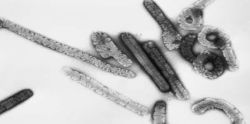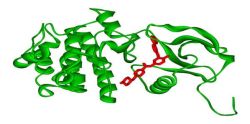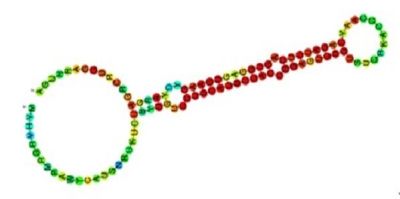Modifying the protocol for Carba NP, a relatively new test for a dangerous form of antibiotic resistance, researchers from Oregon State Public Health Lab (USA) have succeeded in increasing the test’s specificity to 100 percent, Medical News Today reported.
The Carba NP test is used for easy identification of carbapenem-resistant Enterobacteriaceae (CRE), often referred to in the media as "superbugs" for their ability to resist most major antibiotics. Carba NP was originally developed by Patrice Nordmann and Laurent Poirel at the University of Fribourg (Switzerland) and Laurent Dortet of the University Hospital of the South-Paris Medical School (France).
Carbapenems are an important class of powerful antibiotics for treating severe infections caused by multidrug-resistant Gram negative bacteria, experts say. Carbapenemases are enzymes produced by some bacteria which inactivate these antibiotics.
'Urgent Public Health Threat'
In the past decade or so, carbapenemase-producing CRE (CP-CRE) have rapidly spread around the world that they are now regarded as "an urgent public health threat" by the Centers for Disease Control and Prevention (CDC), said Karim Morey of the Oregon State Public Health Lab, a member of the research team.
In the study, Morey and her colleagues assessed the ability of the Carba NP test to properly identify 59 of the 201 clinical isolates as carbapenemase producers. Using a previously published Mayo Clinic protocol, the research team correctly identified 92 percent as being carbapenemase producers, including all strains of NDM-1 and KPC, two important types of CRE. After adjusting the protocol to increase the inoculum size, the team tested again achieving 100 percent sensitivity. The average time to complete a test was 2.5 hours.
"We conclude that the Carba NP test is highly sensitive, specific and reproducible for the detection of carbapenemase production in a diverse group of organisms," Morey said. Their work was presented at the 54th Interscience Conference on Antimicrobial Agents and Chemotherapy (ICAAC 2014), an infectious disease meeting of the American Society for Microbiology.
Carba NP Less Expensive Than PCR Test
Polymerase chain reaction (PCR), a DNA-based test, is currently the gold standard for detecting CRE. The PCR test, which is expensive, requires equipment that many labs simply do not have, particularly in low-income countries that are large reservoirs for CRE.
Carba NP is a simple and much less expensive test that can be performed in practically any clinical laboratory. More importantly, Carba NP can provide results in hours. "Timely detection of CP-CRE is critical to patient care and infection control," Morey noted.
The study was conducted as part of the Drug Resistant Organism Coordinated Regional Epidemiology Network, a CDC-funded statewide initiative to prevent the emergence and spread of CRE in the state of Oregon.
During the ICAAC meeting, Nordmann, Poirel and Dortet also presented a new method for identifying extended-spectrum beta-lactamase (ESBL), another dangerous form of antibiotic resistance, directly from urine samples. This new test, which costs only a few dollars to perform, can be done in almost any microbiology lab. The test has a specificity of over 98 percent and takes 20 minutes to obtain results, as compared to current methods which can take one to two days, the researchers said.
Source: MedicalNewsToday.com
Image Credit: Wikipedia
Latest Articles
Drug Resistance, superbugs, infectious diseases, CRE
Modifying the protocol for Carba NP, a relatively new test for a dangerous form of antibiotic resistance, researchers from Oregon State Public Health Lab (...
























